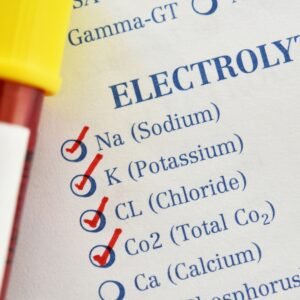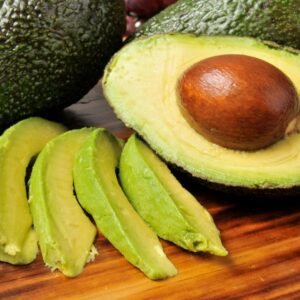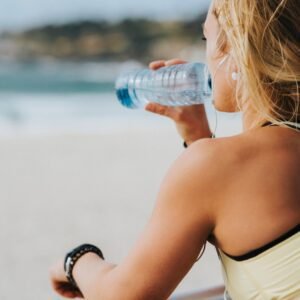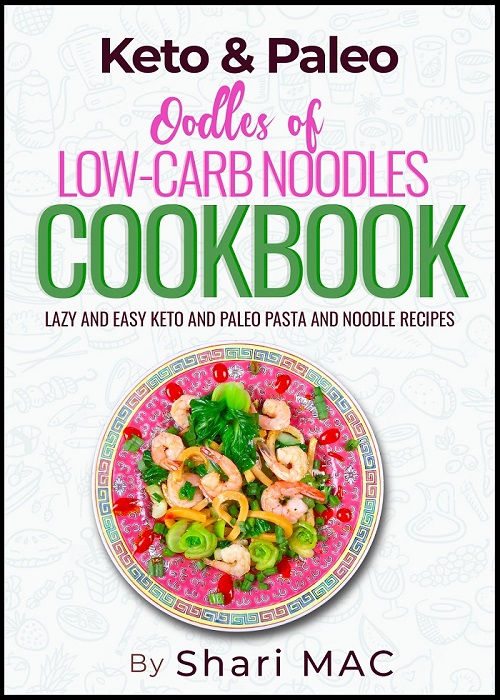KETO ELECTROLYTES: Essential for a Successful Ketogenic Diet


As an Amazon Associate I earn from qualifying purchases.
Adding electrolytes to my diet was crucial for my success on the Keto diet without experiencing physical discomfort. The important thing is to avoid an electrolyte imbalance while on Keto. I attempted the diet multiple times but struggled with muscle aches, headaches, and other symptoms of the Keto flu. Regularly consuming electrolytes, especially if you exercise is essential for your success. I hope this article helps you grasp the significance of including electrolytes in your Keto diet to achieve success. If I can do it, you can too.
SHOULD I TALK TO MY DOCTOR FIRST BEFORE BEGINNING THE KETO DIET?
Yes, it’s advisable to talk to your doctor before beginning the keto diet, especially if you have any underlying health conditions or concerns. Your doctor can provide personalized advice based on your medical history, current medications, and overall health status. They can help you determine if the keto diet is suitable for you and provide guidance on how to proceed safely. Consulting with a healthcare professional can also help you understand any potential risks or side effects associated with the keto diet and how to mitigate them. Your doctor can monitor your progress and make adjustments to your diet or medications as needed to ensure your health and safety while following the keto diet.
ARE YOU EXPERIENCING THE KETO FLU?


Are you experiencing symptoms like muscle cramps, fatigue, or headaches? I bet at least some of these symptoms may be a result of electrolyte imbalances. Electrolytes play a crucial role in maintaining proper hydration, nerve function, and muscle contractions. When you’re on a keto diet, your body goes through significant changes, including an increased excretion of electrolytes. Therefore, it’s essential to replenish these electrolytes to support your overall well-being and optimize your keto journey. By ensuring sufficient intake of sodium, potassium, and magnesium, you can prevent electrolyte imbalances and the associated symptoms. Whether through dietary modifications or electrolyte-enhanced beverages, prioritizing your electrolyte needs can support your overall success on a keto diet. Remember to listen to your body and consult with a healthcare professional for personalized guidance.
WHY ARE ELECTROLTES IMPORTANT ON A KETO DIET?


WHAT ARE THE MAIN ELECTROLYTES?


The main electrolytes essential for bodily functions are sodium, potassium, calcium, magnesium, chloride, and phosphate. Sodium is crucial for maintaining fluid balance, nerve function, and muscle contractions. Potassium regulates heartbeat, muscle function, and nerve signals, playing a vital role in maintaining blood pressure. Calcium is essential for bone health, muscle contraction, and nerve function, also contributing to blood clotting and enzyme function. Magnesium is involved in hundreds of biochemical reactions, including energy production, muscle and nerve function, and DNA synthesis. Chloride helps regulate fluid balance, maintains proper pH levels, and is a component of stomach acid, aiding digestion. Phosphate is vital for bone and teeth health, energy metabolism, and cellular signaling. These electrolytes work synergistically to support various physiological processes essential for overall health and well-being.
HOW CAN I INCREASE SODIUM INTAKE ON A KETO DIET?


Increasing sodium intake on a keto diet can be achieved by adding salt to meals or consuming salty foods like pickles, olives, and cured meats. Some fermented foods are ideal! Fermented foods can vary in their sodium content depending on the type of fermentation process used and any added salt. While some fermented foods may contain moderate to high levels of sodium, others may have lower sodium content. For example, fermented vegetables like sauerkraut and pickles often contain a significant amount of sodium because salt is commonly used in the fermentation process to create an environment that inhibits the growth of harmful bacteria.
Fermented Soy Products:
Similarly, fermented soy products like miso and soy sauce can be high in sodium due to the salt added during fermentation. However, not all fermented foods are high in sodium; some options like certain types of yogurt or kefir may have lower sodium levels depending on the recipe and fermentation process. It’s essential to check the nutrition label or inquire about the sodium content of fermented foods if you’re monitoring your sodium intake, especially on a keto diet where electrolyte balance is crucial.
Drinking Bone Broth:
Two blogs you may want to read about bone broth:
BONE BROTH FAST – THE ULTIMATE GUIDE
WHAT ARE GOOD SOURCES OF POTASSIUM ON A KETO DIET?


Good sources of potassium on a keto diet include avocados, which are rich in potassium and also provide healthy fats.
Leafy Greens:
Leafy greens such as spinach, kale, and Swiss chard are excellent potassium sources and can be incorporated into salads or cooked dishes. Nuts and seeds like almonds, pumpkin seeds, and sunflower seeds are potassium-rich snacks that can be enjoyed on a keto diet. Fish such as salmon and tuna are not only high in healthy fats but also contain potassium, making them a nutritious choice.
Meat:
Meat, particularly lean cuts like chicken and turkey, also provides potassium along with protein. Low-carb vegetables like broccoli, Brussels sprouts, and cauliflower are potassium-rich options that fit well into a keto meal plan. Incorporating potassium-rich dairy products like yogurt or cheese can contribute to your daily intake.
Mushrooms:
Mushrooms are another vegetable source of potassium that can be added to various keto recipes. It’s essential to maintain a balance of potassium with other electrolytes like sodium and magnesium for overall health on a keto diet.
Consulting:
Consulting with a healthcare professional or registered dietitian can help ensure you’re meeting your potassium needs while following a keto lifestyle.
Here’s a list of 10 keto-friendly foods high in potassium along with their approximate potassium content per serving:
- Avocado: A medium-sized avocado contains around 975 milligrams of potassium.
- Spinach: One cup of cooked spinach provides approximately 840 milligrams of potassium.
- Salmon: A 3-ounce serving of cooked salmon contains about 360 milligrams of potassium.
- Chicken Breast: A 3-ounce serving of cooked chicken breast offers roughly 218 milligrams of potassium.
- Swiss Chard: One cup of cooked Swiss chard provides approximately 961 milligrams of potassium.
- Pumpkin Seeds: A quarter cup of pumpkin seeds contains around 241 milligrams of potassium.
- Almonds: One ounce of almonds provides approximately 208 milligrams of potassium.
- Yogurt (Greek, plain, whole milk): One cup of plain, whole milk Greek yogurt offers roughly 240 milligrams of potassium.
- Mushrooms: One cup of cooked mushrooms contains approximately 305 milligrams of potassium.
- Broccoli: One cup of cooked broccoli provides around 457 milligrams of potassium.
HOW CAN I ENSURE SUFFICIENT MAGNESIUM INTAKE?


Ensuring sufficient magnesium intake on your ketogenic diet is crucial for overall health and well-being.
Here are ten strategies to help you meet your magnesium needs:
Include Magnesium-Rich Foods:
Incorporate foods like nuts, seeds, leafy greens, avocados, and fish into your meals as they are excellent sources of magnesium.
Supplement Wisely:
Consider taking a magnesium supplement, such as magnesium citrate or magnesium glycinate, especially if your dietary intake is inadequate.
Track Your Intake:
Monitor your daily magnesium intake using a food diary or tracking app to ensure you’re meeting your recommended daily allowance (RDA).
Choose Dark Chocolate:
Opt for dark chocolate with high cocoa content, as it contains significant amounts of magnesium.
Consume Magnesium-Rich Beverages:
Enjoy beverages like mineral water or herbal teas made from magnesium-rich herbs like nettle leaf or peppermint.
Use Epsom Salt Baths:
Soaking in an Epsom salt bath can help your body absorb magnesium through the skin, promoting relaxation and replenishing magnesium levels.
Be Mindful of Cooking Methods:
Some cooking methods, such as boiling or steaming, can lead to magnesium loss in foods. Opt for methods like baking or grilling to preserve magnesium content.
Limit Alcohol and Caffeine:
Excessive alcohol and caffeine intake can impair magnesium absorption and increase urinary excretion, so moderate your consumption.
Manage Stress:
Chronic stress can deplete magnesium levels in the body. Practice stress-reducing techniques like meditation, deep breathing, or yoga to support magnesium balance.
Consult a Healthcare Professional:
If you suspect you have a magnesium deficiency or are unsure about your magnesium intake, consult with a healthcare professional for personalized advice and potential testing.
WHAT ARE THE BENEFITS OF ELECTROLYTE SUPPLEMENTATION?


WHEN SHOULD I CONSIDER ELECTROLYTE SUPPLEMENTATION?


On your ketogenic diet, considering electrolyte supplementation is crucial under certain circumstances:
Transition Phase:
During the initial transition to ketosis, the body excretes more water and electrolytes, leading to potential imbalances. Supplementing electrolytes can help alleviate symptoms of the keto flu and support adaptation.
Physical Activity:
Engaging in intense exercise or physical activity can increase electrolyte loss through sweat. Supplementing before, during, or after workouts can help replenish lost electrolytes and prevent dehydration and muscle cramps.
Symptoms of Electrolyte Imbalance:
Recognizing signs such as fatigue, muscle cramps, headaches, dizziness, or irregular heartbeat indicates a potential electrolyte imbalance. In such cases, supplementation can restore proper levels and alleviate symptoms.
Hot Climate or High Altitude:
In hot weather or at high altitudes, the body may lose electrolytes more rapidly through sweating or increased respiration. Supplementing can help maintain electrolyte balance and prevent dehydration.
Restricted Food Choices:
Some keto-friendly foods, like lean meats and certain vegetables, may not provide sufficient electrolytes. In such cases, supplementation ensures adequate intake, especially if dietary variety is limited.
Medication Interactions:
Certain medications, such as diuretics or laxatives, can affect electrolyte levels. If you’re taking such medications alongside a keto diet, supplementation may be necessary to offset potential imbalances.
Digestive Issues:
Digestive conditions like diarrhea or vomiting can lead to electrolyte loss. Supplementing with electrolytes can help replace those lost through gastrointestinal disturbances.
Pregnancy or Breastfeeding:
Women who are pregnant or breastfeeding may require higher electrolyte intake due to increased fluid needs. Supplementation under the guidance of a healthcare provider can support maternal and fetal health.
Chronic Health Conditions:
Individuals with certain health conditions like kidney disease, diabetes, or adrenal insufficiency may have altered electrolyte balance. In such cases, supplementation should be managed in consultation with a healthcare professional.
Personal Sensitivity:
Some individuals may be more sensitive to electrolyte fluctuations or may experience symptoms more acutely. Monitoring symptoms and adjusting supplementation accordingly can help maintain optimal electrolyte levels.
CAN I DRINK ELECTROLYTE-ENHANCED BEVERAGES ON A KETO DIET?


Yes, you can drink electrolyte-enhanced beverages on your keto diet, but it’s essential to choose ones that align with your nutritional goals. Look for options with no added sugars or artificial sweeteners to avoid unwanted carbohydrates. Opt for beverages specifically formulated for keto or low-carb diets to ensure they fit within your macronutrient targets.
Be cautious of hidden carbs in electrolyte drinks, such as maltodextrin or other fillers, which can affect ketosis. Consider making your own electrolyte beverages using natural ingredients like water, electrolyte powders, and flavorings without added sugars. Always check the nutrition label for carbohydrate content and choose beverages with minimal to no carbs per serving.
Be Mindful:
Be mindful of the electrolyte balance in these drinks, ensuring they provide adequate sodium, potassium, and magnesium to support your body’s needs on a keto diet. Moderation is key, as excessive consumption of electrolyte-enhanced beverages may lead to unnecessary electrolyte intake or interfere with hydration.
Consider incorporating whole food sources of electrolytes into your diet alongside or instead of these beverages, such as leafy greens, avocados, nuts, and seeds. Stay hydrated by drinking plenty of water throughout the day, as electrolyte beverages should complement, not replace, your overall fluid intake. Monitor your body’s response to electrolyte-enhanced beverages, adjusting consumption based on your individual needs and preferences.
Consulting with a healthcare professional or nutritionist can provide personalized guidance on incorporating electrolyte beverages into your keto lifestyle. It’s better to prepare the beverages yourself to help cut down on additives and sweeteners that you don’t want to ingest on a regular basis. Here are a few recipes:
Keto Electrolyte Lemonade:
Ingredients:
- 2 cups of water
- Juice of 1 lemon
- 1/4 teaspoon of Himalayan pink salt (for sodium)
- 1/4 teaspoon of potassium chloride (such as Lite Salt)
- Stevia or erythritol to taste (optional)
Instructions:
Mix all the ingredients in a pitcher until the salt is dissolved.
Adjust sweetness to taste, if desired.
Serve over ice and enjoy.
Keto Electrolyte Berry Smoothie:
Ingredients:
- 1 cup of unsweetened almond milk
- 1/4 cup of frozen berries (such as raspberries or strawberries)
- 1/4 teaspoon of Himalayan pink salt
- 1/4 teaspoon of Lite Salt
- 1/4 avocado (for potassium)
- Stevia or erythritol to taste (optional)
Instructions:
Blend all the ingredients until smooth.
Taste and adjust sweetness if needed.
Pour into a glass and enjoy as a refreshing electrolyte-rich smoothie.
Keto Electrolyte Coconut Water:
Ingredients:
- 1 cup of coconut water (unsweetened)
- Juice of 1 lime
- Pinch of Himalayan pink salt
- Pinch of Lite Salt
Instructions:
Mix all the ingredients in a glass until the salts are dissolved.
Optionally, you can add ice cubes for a colder drink.
Sip and enjoy the hydrating benefits of this keto-friendly electrolyte drink.
These recipes provide essential electrolytes like sodium, potassium, and magnesium, helping to replenish electrolytes lost during ketosis. Adjust the ingredients according to your taste preferences and nutritional needs.
ARE THERE ANY RISKS ASSOCIATED WITH ELECTROLYTE SUPPLEMENTATION?


- Sovi Reserve Red: Perfect For Keto Chicken Crust Pizza - May 9, 2024
- Non Alcoholic Wine, Keto & Weight Loss: Guilt-Free Sips - May 6, 2024
- Non Alcoholic Wine & Smashed Brussels: Heavenly Health - May 6, 2024





